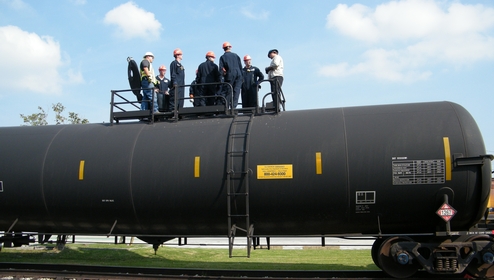
Why Logistics Management Matters
At CSX, we help manage your supply chain with dedicated logistics support to eliminate any bottlenecks at your destination. Our logistics manager oversees schedules and communicates with both the origins and destinations to keep shipments moving. Click here to download as a PDF.
What is Bunching?
Train bunching occurs when a facility has more arriving trains that it is capable of unloading. A bottleneck results as trains and cars continue to back up.
Why is Bunching a Problem?
In short, train bunching equals loss of value. Shippers' tank cars are not returned on time, which is costly in terms of asset utilization and inventory carrying costs. Refineries risk losing suppliers when the bottleneck becomes overwhelming.
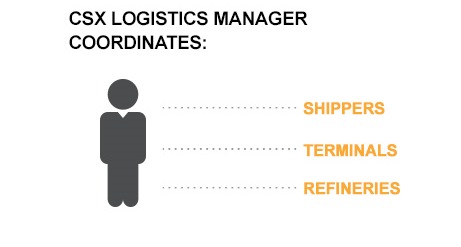 How Does CSX Help You?
How Does CSX Help You?
Unlike other transportation companies, CSX employs a dedicated logistics manager to coordinate with shippers, terminals and refineries, helping to maintain the flow of your supply chain. your CSX logistics manager also helps synchronize producer and receiver schedules, optimizes transit times, plans inventory and helps improve asset utilization.
EXAMPLE: The Difference a Day Makes
The example below illustrates how our logistics management team helps suppliers and car owners save money in the event of an unforeseen problem or situation.
ABC Refinery is able to unload one 104-car train (72,800 bbls) a day. On Sept. 30, 2014, at midnight, ABC Refinery receives its train. Unforeseen unloading issues make it clear it will take an extra 24 hours to unload the train.
The CSX logistics manager is in touch with ABC Refinery and learns of the delay. She contacts the supplier, reviews its loading and shipping schedule, and coordinates a delayed departure. The CSX logistics manager's actions help the refinery maximize productivity while simultaneously helping the supplier save money by freeing up tank cars that would otherwise be stalled.
Assumptions: Price of Bakken oil = $100/bbl., $100 x 104 cars x 700 bbl/car = train value of $7,280,000.
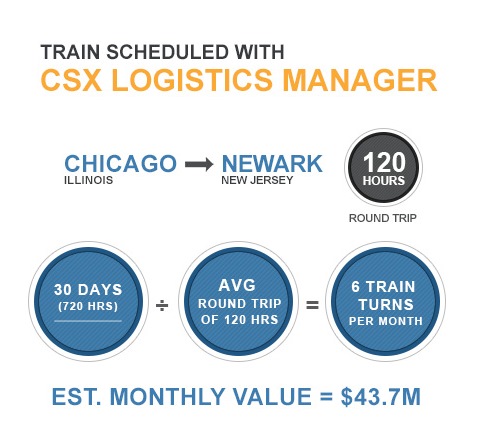
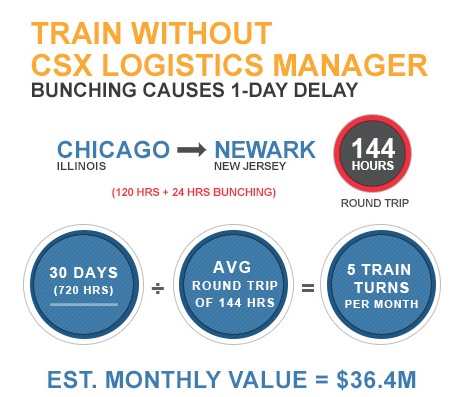
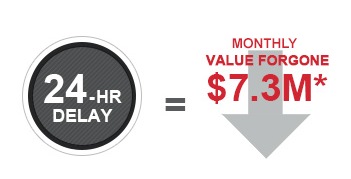
As you can see, without logistics support -- resulting in bunching and delays of just 24 hours on this particular train each month -- a supplier could experience a reduction in value of approximately $7.3M over the course of a month. These losses would be compounded by storage and holding fees charged by participating rail carriers, further reducing potential savings.